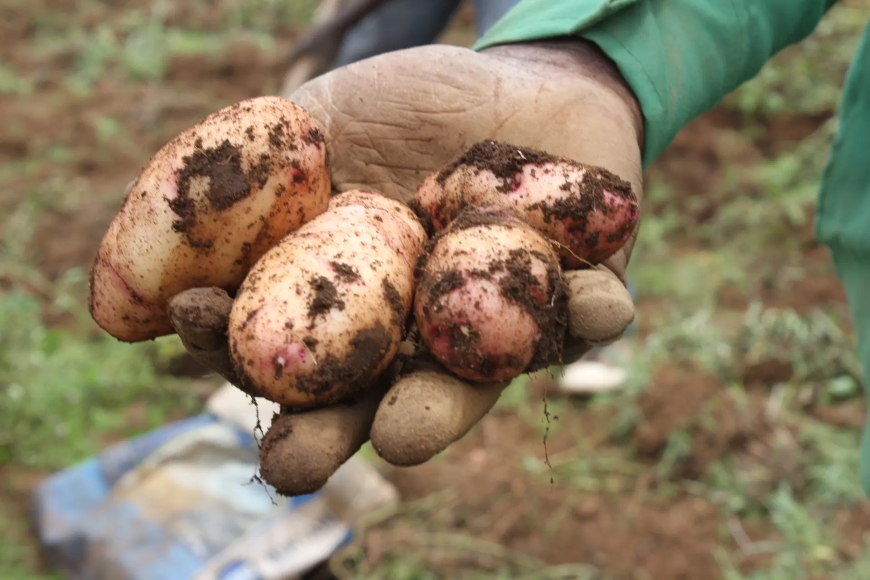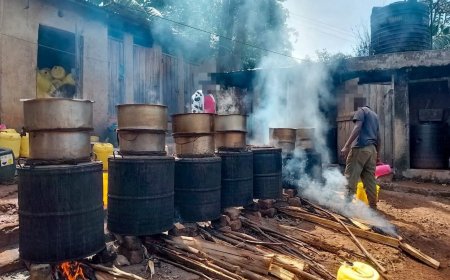Only 11.85 percent of potato farmers in Nyandarua follow manufacturer instructions on usage of pesticides

BY ERIC ABUGA
The Senate Agriculture Livestock and Fisheries Committee chaired by Senator Wafula Wakoli has held a session with researchers from Egerton University to examine the extent and implications of pesticide misuse in Kenya’s potato value chain.
The researchers Prof Joseph Wafula Matofari, Dr John Masani Nduko and Millicent Kanario presented findings from a recent study conducted in Nyandarua County; the country’s leading potato producing region.
The study titled “Influence of Onfarm Pesticide Practices and Processing Methods on Pesticide Residue Levels in Potato Tubers” documented widespread reliance on synthetic pesticides among smallholder farmers with 98.8 percent of surveyed farmers using chemical inputs to manage pests and diseases.
The study revealed that the majority of farmers apply pesticides without adhering to recommended safety guidelines.
Only 11.85 percent follow manufacturer instructions while most rely on agrochemical retailers or peer advice for application rates and spraying frequency.
Mixing of different pesticide formulations including fungicides insecticides and foliar fertilizers is common practice with frequent weekly applications observed across farms.
Researchers reported that this misuse has resulted in elevated levels of pesticide residues in potato tubers including traces of banned insecticides such as chlorpyrifos and fenitrothion.
These substances were detected at concentrations above the maximum residue limits set by the European Union and Codex Alimentarius. The study also established a direct link between short preharvest intervals and high residue levels with tubers harvested three weeks after spraying showing significantly elevated concentrations.
In addition to documenting farm level practices the study evaluated the effect of common household cooking methods on residue levels. Methods such as frying boiling and steaming were shown to reduce most pesticide residues substantially.
However for persistent chemicals like chlorpyrifos residue levels remained above international safety limits even after heat treatment raising concerns about food safety for consumers.
The committee took note of the systemic challenges identified in the report including inadequate farmer training limited access to agricultural extension services and gaps in regulatory enforcement.
Members underscored the need to strengthen monitoring and compliance mechanisms under the Pest Control Products Board and to enhance public awareness on safe pesticide use in food production.
Also present during the meeting were Senators Alexander Mundigi, Catherine Mumma, Prof Tom Ojienda, Moses Kajwang’, Abass Sheikh, Wahome Wamatinga, and Mwenda Gataya.
What's Your Reaction?
 Like
0
Like
0
 Dislike
0
Dislike
0
 Love
0
Love
0
 Funny
0
Funny
0
 Angry
0
Angry
0
 Sad
0
Sad
0
 Wow
0
Wow
0

















































